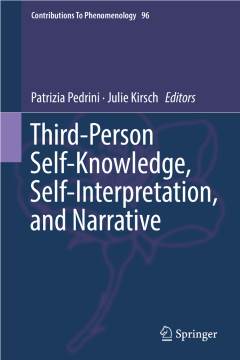Repository | Book | Chapter

(2018) Third-person self-knowledge, self-interpretation, and narrative, Dordrecht, Springer.
We argue that many intuitions do not have conscious propositional contents. In particular, many of the intuitions had in response to philosophical thought experiments, like Gettier cases, do not have such contents. They are more like hunches, urgings, murky feelings, and twinges. Our view thus goes against the received view of intuitions in philosophy, which we call Mainstream Propositionalism. Our positive view is that many thought-experimental intuitions are conscious, spontaneous, non-theoretical, non-propositional psychological states that often motivate belief revision, but they require interpretation, in light of background beliefs, before a subject can form a propositional judgment as a consequence of them. We call our view Interpretationalism. We argue (i) that Interpretationalism avoids the problems that beset Mainstream Propositionalism and (ii) that our view meshes well with contemporary cognitive science.
Publication details
DOI: 10.1007/978-3-319-98646-3_5
Full citation:
McGahhey, M. , van Leeuwen, N. (2018)., Interpreting intuitions, in P. Pedrini & J. Kirsch (eds.), Third-person self-knowledge, self-interpretation, and narrative, Dordrecht, Springer, pp. 73-98.
This document is unfortunately not available for download at the moment.



